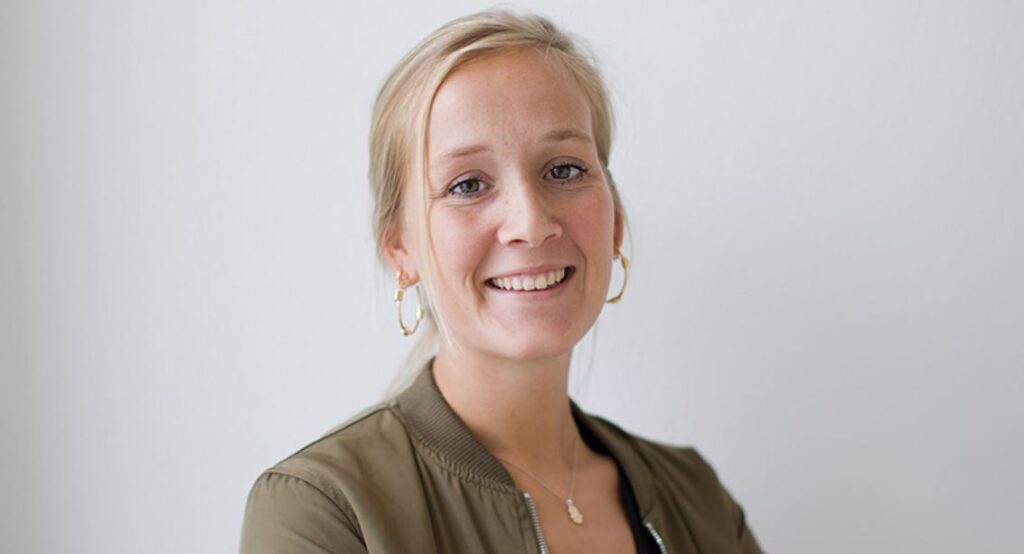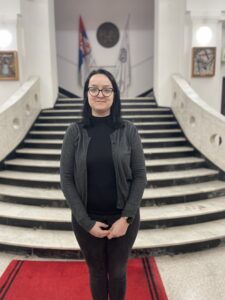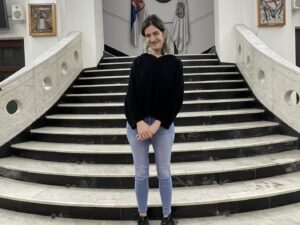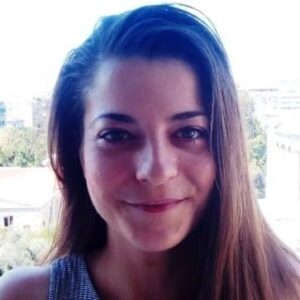Merel Mostert from the Netherlands:
I work as a Senior Policy Advisor in the Wastewater sector for Delfland Water Authority in the Netherlands. This is one of the 21 water authorities in the country. A water authority takes care of water levels, for example with pumping stations, wastewater purification, managing dikes and clear water.
It’s clear to me that access to water resources should be equal in each country: a situation in which everyone is responsible for the quantity and quality of available water. We would all take care of our role in resource management, so that water is available to everyone. Water should be a human right.
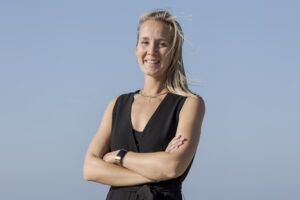
Thanks to EJWP, I have learned to network and connect with other water and environmental international professionals. We all have a different professional backgrounds and nationalities. This makes it challenging and interesting to work together on different projects. It is also nice to get to know other professionals such as EJWP Ambassadors and officials we meet at events. This has broadened my knowledge about the water sector in Europe.
There are so many EJWP training and project experiences after almost 2 years! The group trainings are interesting and useful. Every time, you get to know something about yourself, that you did not know before. Also, the host weeks at different organizations were great, with a warm welcome and learning experiences.
The communication part, internationally and digitally, has been a challenging but very useful element of EJWP so far. It has shown how things can be interpreted differently. Also, the way of communication can vary, which is really nice because you sometimes have to adapt to the others. This also works nationally – and working internationally, not in your mother-tongue, makes it even more challenging.
Personally, it was challenging to be the project leader of one of the projects. I developed skills or realized to use some certain skills that I was not aware of before, all in about a three-month period. The networking, after working together for 2 years, has been great. As a group, we have become very close and built a trusting relationship. This also helped to connect and reach out to other people or organizations internationally that we needed for certain projects.
Challenges at the EU and Global Level
The EU, and thus the member states, should take more of a leading role in seeing the water sector as one: for all countries to work together and put in the effort to consistently deliver safe and reliable water services. Protecting water as a vulnerable resource is, I think, one of our main challenges now and in the near future. To solve this, the capacity of both drinking water and wastewater sectors to address current and future challenges must be strengthened. Next to that, the protection and management of water resources need to be strengthened and maintained. Existing legislation should therefore be assessed and see if it still fits.
We can make beautiful programs like with the intention of cooperation within the EU, so that’s at least positive, and we should build in more action-based approaches. I am optimistic that we can work together more, because the real problems are there.
International water professionals have a crucial role to communicate how important water is to everyone. Exchanging knowledge and experience will help us better adapt to the impacts of climate change. Water scarcity is a climate-related challenge for everyone, and different countries often have their particular expertise in managing water. For example, in the Netherlands, we are proficient in building dikes, and Spain is advanced in wastewater treatment.
At the EU level, we can share these benefits for all without having to invent the systems again within each country. One thing to consider is that not everyone is facing the same impact. In the Netherlands, our ground in summer is getting drier, but it may not be noticed. In Spain in France, they are planning for long term. It’s human that if a problem does not affect you, then you may be less motivated to solve it. That’s one thing about climate change; it can bring us together to work on these solutions.
Looking ahead
I did my Bachelor of European Studies at The Hague University and after that my master’s in European Studies at Ghent University. Thanks to EJWP, I realized how important international cooperation and programs are. Therefore, I recently joined another international program which focuses on water quality in South Africa. In the next 5 years, I hope I can develop my international network further and see where I can have an added value for international cooperation. I hope I can become a part of the change we need to make about water protection, quality and quantity.

